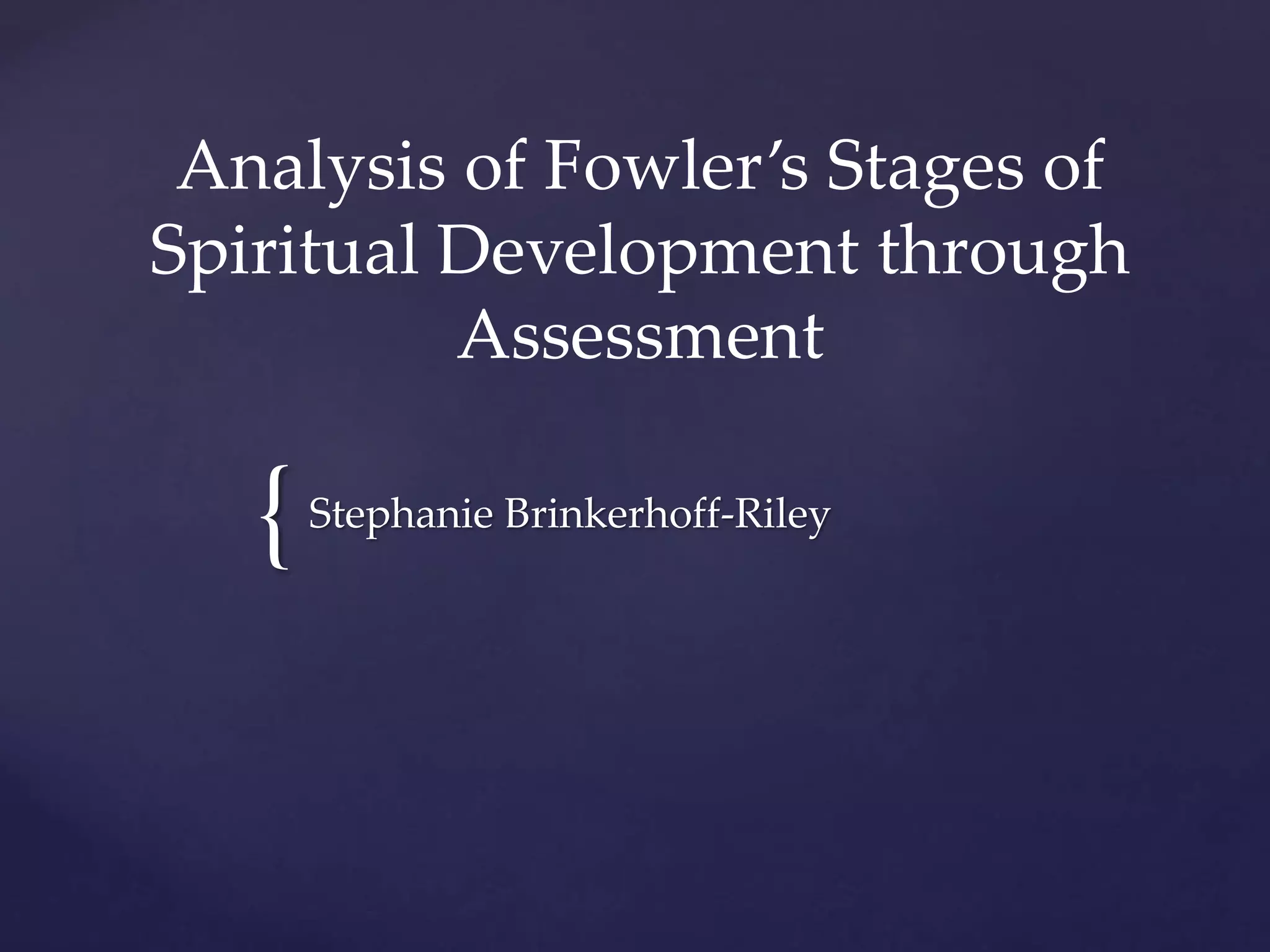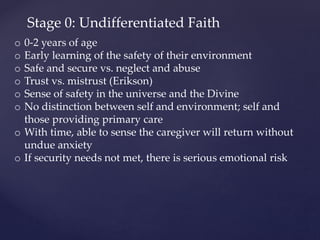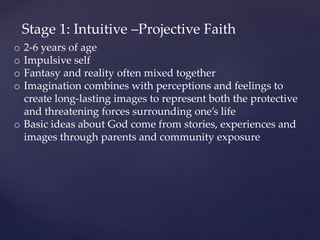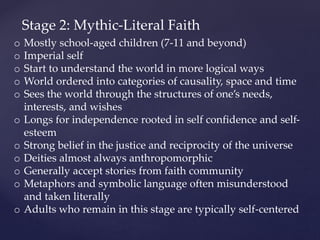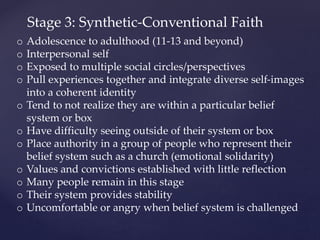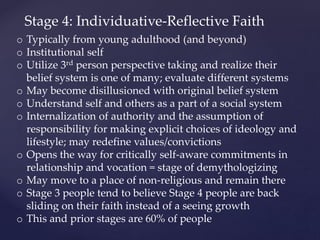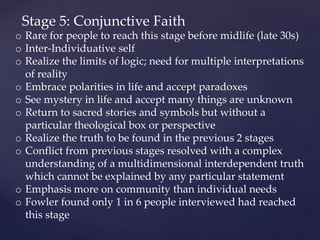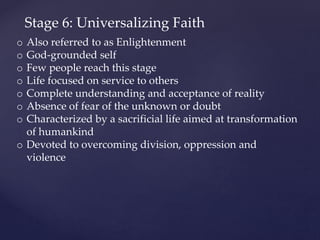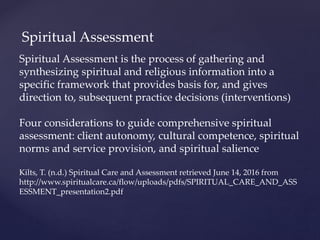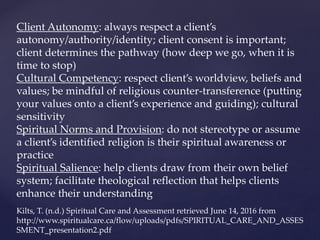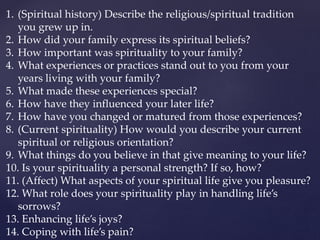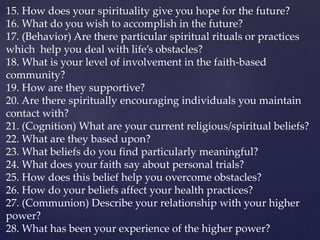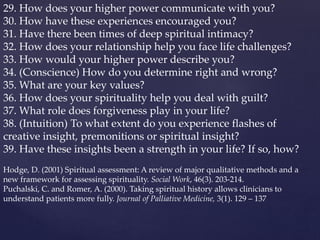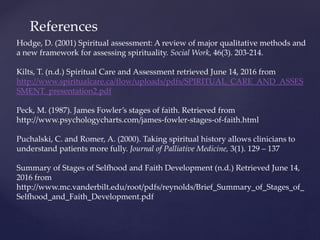Fowler's stages of faith development include 6 stages through which individuals progress from childhood through adulthood. Stage 1 involves intuitive and magical thinking in young children. Stage 2 involves concrete thinking in school-aged children who see the world in logical terms. Stage 3 involves establishing identity and conforming to social norms in adolescence through early adulthood. Stage 4 involves establishing individual identity through critically evaluating beliefs. Stage 5 involves embracing paradoxes and multiple perspectives. Stage 6, reached by few, involves a life focused on serving others. Spiritual assessment involves respecting client autonomy, cultural competence, understanding spiritual salience, and facilitating theological reflection to enhance understanding.
